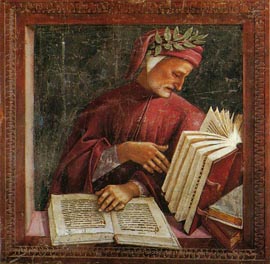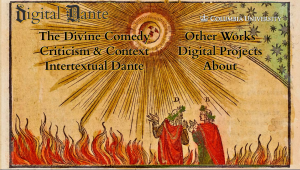We are delighted to announce two new faculty members in the Medieval & Renaissance community at Columbia University this fall: Professor Alexandre Roberts (from the history department) and Professor Eliza Zingesser (from the French department).
Alexandre Roberts (PhD Berkeley, 2015) is joining us as Assistant Professor of History. Alex is an extraordinarily gifted scholar of Greek- and Arabic-language texts produced in the Byzantine empire and its former territories, with an interest in intellectual, religious, and scientific culture. The first part of his dissertation examines the translations from Greek into Arabic of an eleventh-century Byzantine cleric living in the border town of Antioch, ʿAbdallāh ibn al-Faḍl. Ibn al-Faḍl’s translation campaign focused on the works of the Greek church fathers writing from the fourth through the eighth centuries (John Chrysostom, Basil of Caesarea, Gregory of Nyssa, Maximos the Confessor, John of Damascus, etc.). The second part of the dissertation turns to the study of the earliest Greek alchemical manuscript, dating from the tenth or eleventh century. His concern here is the intellectual position of alchemy in eleventh-century Byzantium, as well as the book itself as an artifact of that culture. The unifying theme of the two parts is an attempt to uncover the eleventh-century Byzantine understanding of matter and its transformation, concepts central both to the divine act of creation addressed by Basil, and to alchemical thought. This is an exciting appointment for both History and Medieval and Renaissance Studies at Columbia.
Eliza Zingesser is a specialist of medieval French and Occitan literature. She studied at Smith College (A.B. summa cum laude) and at Princeton University (Ph.D. 2012). She was formerly a Research Fellow at the University of Cambridge (2012-2013) and an Assistant Professor at the University of Ottawa (2013-2014). Her main focus within medieval French and Occitan literature is on issues of assimilation, multilingualism, cultural and linguistic contact, and gender and sexuality. She is currently writing two books. The first, French Troubadours: Assimilating Occitan Poetry in Medieval France, explores the reception of Occitan lyric poetry in France in the thirteenth and fourteenth centuries, that is, during the Albigensian Crusade (1209-1229) and its aftermath, which witnessed France’s annexation of the majority of Occitania. French Troubadours shows how Occitan poems were subtly incorporated into the French canon by way of imitation, compilation with French texts, and adaptation to the French sound system. By extension, it shows how the linguistic and cultural specificity of troubadour lyric was suppressed in its early French transmission. The second book, Borderlands: Intercultural Encounters in the Medieval French Pastourelle, explores how pastoral literature became a privileged vehicle for the exploration of cross-cultural tension by francophone medieval writers, including anonymous poets, Jean Bodel, and Jean Froissart. The book turns to four territories peripheral to medieval francophone space—Occitania, the Basque country, Flanders and England. Zingesser was a member of the Executive Committee of the MLA Discussion Group for Provençal Language and Literature (2010-2015). She has received grants and awards from the Medieval Academy of America, the Fulbright Foundation, the Institut Français d’Amérique, the Josephine de Kármán Fellowship Trust, and the Institute for Research in the Humanities at the University of Wisconsin, Madison.




 whose scholarship is honored in a new collection of essays:
whose scholarship is honored in a new collection of essays:



